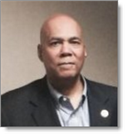See previous Ask The Coach questions and answers here. This question is a little different in that it is a question from me! Here’s what I sent to my coaches:
The question comes from me this time. I was presenting at an outplacement office in San Francisco and had what I thought was a pretty awesome presentation. At the end of my presentation a guy in the back said, “Jason, I’ve done everything you have said. Networking, branding, etc. But none of it works! What do I do now?” He was clearly pretty jaded… but what do you do when the “normal advice” just doesn’t work?
How did the coaches respond? Read on!

This has happened to me before. Similar situation, similar reaction. To address the question to the crowd, I responded to the inquiry that as a career coach, I would need to work with the client directly to dissect his process in order to answer why the normal advice isn’t working. I did, in fact, leave my card with the workshop participant who was jaded by what he believed was an ineffective process. We began working together 1-1, and I offered my services pro bono because I do believe the process works if done well. We spent a month together walking through his process and there were in fact holes.
For instance, my client believed he was effectively following up with applications, but in fact, he wasn’t. He wasn’t taking extra steps to call or write an inquiry on the status of his applications, giving him an extra opportunity to brand and market himself. One other thing we identified, he wasn’t good at selling himself because he hadn’t learned HOW to see himself – how to brand himself effectively. We worked on that extensively.
In short, the process works. If there is a breakdown in the process, it is important to revisit the process, identify where the breakdown is occurring, and revise. Because we aren’t taught career dev strategy in formal education, it is assumed we just know how to do this effectively, when in fact it is quite difficult. When we can’t do it on our own, sometimes working with a professional is necessary.

I understand job searching can get discouraging, especially when you feel you’ve tried it all.
When coaching executive clients on job search, we take a deep dive into their job search activity. Here’s one scenario: One CFO said she’d tried everything: networking, online postings, LinkedIn, the works.
I said, “Everything? Have you documented all of your search activities?” Turned out, she’d not documented all her activities. This was a revelation in multiple ways. She realized she’d not been doing job search activities daily. It felt like a daily activity and it felt like she’d tapped all her contacts, but that wasn’t reality. She’d not formerly tracked where, when or to whom she sent resumes. Searching her emails, she also realized she’d not followed up on those jobs she truly wanted. And she discovered some untapped connections in her network. Together, we created a new career search action plan, which she put into an Excel spreadsheet (remember, she’s a CFO) AND we worked together on a new networking sound bite and strategy. She landed a dream gig just weeks afterward.
Take a deep dive into your career search activity. Are you tracking where, when, and to whom you’ve sent your resumes? Have you followed up on those jobs that truly interest you? What methods are you using for job search? Is it truly “everything?” If so, take another look at your approach. Are you tailoring your letters / resumes? Are you responding only to those online postings where you’re a near perfect match? Does your network understand what you do and the companies where you wish to work? If you need objective perspective on your job search activity, hire a career coach to assist you.
You got this!

I have gotten this response a lot over the years from professionals frustrated with their search. My response is always the same: You are learning resiliency. Pace yourself, it is a marathon, not a sprint. It’s no fun being in your space and frustration and disappointment are unfortunately part of the ride. The bottom line is this-your strategy is not working. It’s not you—it’s not the marketplace, it is how you are presenting yourself to what is available.
Remember Henry Ford’s wise words, “If you think you can or you think you can’t, you are right.”
Here are a few tips to help turn the ship around:
- Not getting any calls on your resume?—it is not working. End. Of. Story. Time to change it up. Tailor it, or hire a professional. It will be money well spent.
- 2. Getting interviews, but not getting calls back or offers? There is something going on in the interview that is turning employers off. Reflect on your answers. Practice interviewing with someone. Get feedback on how you are presenting yourself. A few simple tweaks might be all you need.
- 3. Practice an attitude of gratitude: Sure the job search sucks, and you are getting jaded by the rejection, but there are many gifts in this time of your life. Ponder what those may be. People sense when you are in a bad space—and will be turned off by your negativity. Do what you can to turn it around and give off a positive attitude.
- 4. Acknowledge your frustration, and then take a break. Self-care is vital in this process. You need to rejuvenate yourself to keep your energy high: Take a hike. Visit the ocean or a river or a lake. Go for a walk. Read a book. Cook something or watch a movie. Bottom line is you need to take a break from the negative self-talk and seek out a new perspective by taking action by being intentionally mindful and present.
Keep going!

A professional baseball player, normally hitting over .300, was in a slump. He’d gone 1 for 22 over the past week or so, and was feeling the pressure. Did he give up? Absolutely not – he went to the batting cage twice daily and hit through it. He’s now back in the groove.
A ferry boat captain was carting cars across Lake Champlain between Vermont and New York was in midst of a transport on a cold, nasty day in December. A passenger asked him “Why do you do this on such a nasty day?” The Captain responded, “If you don’t go, you don’t get.”
So, what does this have to do with Job Seekers? You could very well feel like you’re in a slump. No responses, not interviews, no offers. This can go on for weeks at a time. Nothing is working. The process doesn’t work. So, what do you do? Don’t quit!
Hit the reset button. Rethink your strategy and examine all the steps you are taking. Are you hitting the right market? Does your résumé make you stand out from the competition? Are you really cultivating relationships throughout your network by calling, emailing, and calling again? Make the adjustments, and then go at it again. Refine your research, make the calls, write the emails. Go for it – big time. The process will ultimately work – you will find the right opportunity – hit the ball again, and again, and again. If you don’t go, you don’t get!

What I’d like you to do is stop and take a break from all your job search activity. Do anything except think about this topic for at least a week. Then take a different approach. Look at everything you have done and take an objective view.
Are you REALLY clear on what job you want? Do you have the right experience and skills to succeed in this role?
Are you clear on why you should get the job, rather than anyone else? How are you presenting this to the world?
Can you explain, succinctly on what you want and why?
Get feedback on your resume and cover letter from a professional and implement their suggestions. This could be via books of you are on limited funds.
And then I’d like you to monitor everything that you do. Keep track of the emails you send, the people you speak to and what happens next. Always follow up and think like a marketer with A&B testing. If one approach doesn’t work, try something else.
You may be desperate to get another job as you need money fast. This desperation can show in your voice and body language so take away some pressure by getting some money in via taking on a temp job or earning some money via Uber, people for hire etc.
Wishing you all the very best for your future success.

The first thing to do is honestly evaluate if is it YOU or the process that is not working. As I tell my clients, it is not what you do that creates success in a job search. It is all about how well you do it, how solid and modern are your tools, and how much passion and drive do you bring to the process every day.
So, in no particular order, explore the following and see what may require change or adjustment.
- Do you need an attitude adjustment? Those who generally ask this question network with a negative one-way attitude whereas successful networking requires always-remaining positive, letting people know you have something valuable to offer as much as you want something in return, and constant follow up and relationship building. Remember, 25-50 solid and in-close-contact LinkedIn and personal connections is of greater value than having a network of 500-1000 people many who you barley know.
- Are you looking for the right job/s? Many struggle in a job search because they are chasing the wrong opportunity when they are not a competitive candidate for hire. In other words, how well do you fit the position/s Hire Profile? Looking for the right position is half the battle.
- You think you established a brand, but is it generic & inclusive or is it truly a differentiator? Moreover, is it giving off mixed signals or the wrong message? Remember in a job search your resume and LinkedIn profile is not about the person you are, it is ALL about the person you want to be. Especially in a resume, many people come across as better qualified for a job other than the one they applied for.
- Do you approach your job search with a job seeker’s or an employer’s mentality. A successful search requires you analyze everything from an employer’s perspective rather than your own.
- The reason people may want to hire you are obvious and rise, like cream, to the top. However most hiring decisions will consider and give equal or more weight to why you are the wrong person for the job. Did you think like an employer and spend time trying to know why people may not want to hire you and what are you doing about it to change or negate their perception of you?
- Are your working to conduct your job search alone in a vacuum or do you have people helping and supporting you? A support system of some sort is a prerequisite for success
- Being a resume writer this is my favorite. Is your resume a poorly written, generic and out of style DIY document? If it is you have less than a 20% chance people will take you seriously and grant you an interview. The solution is getting it done over professionally.

Your situation is unique – as everyone’s is – but first let’s make sure you’ve really been nailing those best practices. Ask yourself:
- Am I doing targeted networking? The best practice is to develop a list of 40-50 target companies that you’re following and networking your way
into. - Am I doing several networking one-on- ones every week? Read a good book on how to do this, like The 2-Hour Job Search by Steve Dalton.
- How do you follow up after these meetings? Your contacts’ promise to “keep you in mind” is a pipe dream if you don’t report back on how you
acted on their suggestions and your ongoing progress. Keep in touch. - What about applying to jobs online? Is that the right strategy for you? If so, are you figuring out how to get your resume in front of the hiring
manager, not just HR? Do you sometimes follow up with a phone call to the hiring manager? If so, what do you say, and what response do you
get? - Are your resume, LinkedIn profile and other materials really top-notch? If you wrote them on your own, or if you hired a low-priced writer, they probably aren’t.
- Are your phone screenings leading to in-depth interviews and moving on to offers? If not, you need to work on your interview skills, probably with expert feedback and coaching.
- Am I pursuing the right job? If you lack important skills or experience for the job you want to do, you may need to consider a “bridge job” that can serve as a stepping stone – or a different career path that’s a better fit.
If you have positive answers to all of these questions and you still don’t have a job after a few months, you definitely need a coach, ASAP. Your situation is unusual and requires skilled, individual attention.

This isn’t easy to say or hear: Do it again. Keep doing it. Job search isn’t a one and done.
It takes persistence, determination, a good support system, and increasing skills. It can be difficult, frustrating, and at times hopeless, but we keep trying and keep learning new and better ways. You can also hire a coach to make sure your processes are effective and efficient.

When I have had outplacement candidates say to me that nothing works I have learned to ask the question “let me see and hear what you are doing”. Many times, and in particular with networking messages, those messages are delivered in a way that truly does not work. For example, candidates will approach a networking contact and ask the fatal question” Are you hiring”? rather than saying “Based on what I have shared with you about my ideal role, do you know of anyone that may have an interest in my background?”
Think about the differences in the approach. The likely answer to the first option is “No I don’t” and the conversation ends. While the likely answer or answers to the second option is “Yes, I do ” or “I don’t right now”. When coached properly the candidate will be able to say “Would you be open to introducing them to me”? This has worked well for my candidates now over 20+years when they hit the “nothing works” wall.

If a job seeker has truly done everything right and still hasn’t received an offer, then chances are:
- Their resume and/or branding are insufficient or off-target from what employers are seeking.
- There are too few opportunities available in their field in the geographic areas in which they’re looking.
- Their interview performance is missing the mark.
- They’re being judged as too ____ (fill in the blank: old, inexperienced, experienced, educated, undereducated, etc.).
- Their salary expectations are out of alignment with the market.
A job search is a bit of a numbers game in that, on average, it takes seven interviews to receive one job offer, but 200-300 job prospects in a given geographic area to yield those seven interviews. Therefore, if a job seeker is doing everything right, but there aren’t enough targeted opportunities in their preferred industries, their search may never get traction.
It’s important to point out, though, that the majority of job seekers likely aren’t doing everything right in their search. I hate to sound negative, but I come across perhaps one client every couple of years of whom this is true. The rest of the time, I find that the job hunter isn’t doing everything they should or isn’t doing it to the degree they should.
If you’re not networking enough or with the right people, or you’re not taking advantage of thought leadership opportunities, or you’re not targeting companies, or you’re not building effective relationships with contacts, then your job hunt will falter, unless you’re in an area where your targeted jobs are available in such numbers that, well, almost anyone in your field could get a job.
The good news is that it’s possible to diagnose what is and isn’t working in your job hunt and fix it.

First, I would want to quantify that statement and get more detail on his specific job search techniques, as well as see his resume. Is he attending networking events and racking up new connections? Or is he building and cultivating relationships with new as well as existing connections? It’s not just about how many people you know, it’s about quality of relationships. And in my experience, ongoing networking to grow these types of relationships is hard for most people. Does his resume serve him well and help him stand out? Is his mindset discouraging potential employers?
Perhaps his process just needs some tweaking and he could benefit from some one-on- one coaching.
Let’s say he has done all the traditional stuff, personal branding, hard networking, etc., and it’s just not working. Time to start thinking outside the box. Here are some thoughts:
- Deliver your resume in a memorable way – with home-baked cookies, a plant, or something related to the company’s industry
- Turn your static resume into a video resume, where you can personally sell yourself
- Set up your own web site showcasing your skills, resume, and examples of your work
- Update your skills or learn new applications that will make you more marketable to employers
- Thoroughly research the specific companies you want to get into – identify a problem or challenge they might have and create a business proposal on how you can help solve it
Bottom line, any job search is a full time job. It takes time, commitment, and effort. It can be discouraging. But the right mindset, patience, and a little creativity may very well land you the job of your dreams!

When clients tell me this, I start with a couple of important questions.
1) Are you truly doing everything you are told to do and doing it correctly?
- Networking (not asking for a job, but targeted, strategic networking every week)
- Understanding and promoting your personal brand/value proposition statement, (not what YOU think it is, but having a professional branding expert help you identify what that truly is)
- CAR story development (not generic CAR stories, but targeted, strategic stories geared for a particular audience)
- How well do you interview? How do people perceive you?
2) How long have you been networking and searching for a new job?
- Timing is everything when you are looking for a new job. Just because you are ready to move on, doesn’t mean the perfect job is ready and waiting for you.
- Patience is key here. It can take 6-12 months and sometimes longer depending on your level and industry.
If I learn that my client has done everything correctly and has given it sufficient time, then it’s time to ask a difficult third question.
3) Are your expectations realistic?
- How long you have been out of work? For many decision makers, an employed candidate is more attractive than an unemployed candidate. What have you/are you doing with your time?
- Are you pursuing the wrong dream/job? Do you meet 90+% of the requirements in the job postings you apply to? The ones who are getting interviews do.
- Does your field favor younger, more up-to-date talent over experience? Unfortunately, ageism does exist. Can you keep up with your competition?
So, what do you do?
- Seek out temporary or voluntary positions where your skills can be utilized.
- Sign up for courses to learn what you lack.
- Consider getting your MBA or other advanced degree if you see that it is preferred more often than not.

The first thing to do is look at your execution. For example, let’s say you haven’t been networking. That’s not good! So it’s no wonder you’re not getting job leads and/or interviews. But suppose you have been networking and still don’t have any success with it. The issue now is whether you’re networking in the right way. So are you connecting with the right kinds of people? Or are you just doing it with “anyone and everyone?” The problem may not be networking, but the way in which you’re handling it. So if you’re not targeting those who can or might be able to help, it’s no wonder why you’re not getting success.
The same problem can happen with branding. You know how important it is to develop a brand. But are you branding yourself in the right way that will impress and attract recruiters and employers? For example, are you using the correct wording? Are you promoting your brand through the right channel(s)? Are you branding yourself in one way but conducting yourself in another manner?
So even if you have the best strategies in the world, they won’t be effective if you carry them out in the wrong way. And that’s what dooms lots of job seekers. They know what to do. Yet they fail to execute the mission in the proper way.
The job search is hard. Doing the right things, over and over, can feel fruitless. But if you are doing the right things, keep doing them. Thanks to the coaches for another great round! See previous questions here: Ask The Coaches.
